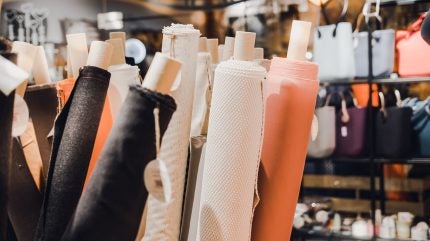
This roadmap is being developed in collaboration with a network of over 30 partners and associates, as well as experts in the field of circularity.
The groundwork for this strategic plan is currently being laid by Gherzi Textil Organisation in conjunction with ReHubs board advisor Evan Wiener.

Discover B2B Marketing That Performs
Combine business intelligence and editorial excellence to reach engaged professionals across 36 leading media platforms.
Set to launch in September this year, the forthcoming document will outline detailed action plans for essential stakeholders and identify priority initiatives for success.
It will also establish definitive key performance indicators (KPIs) and offer a sequential guide to expand textile-to-textile recycling.
ReHubs CEO Robert van de Kerkhof said: “The textile and apparel industry stands at a critical crossroads. With changes in legislation and rapid technological advances, we have a unique chance to implement systemic transformation that benefits the environment, the economy, and society.
“ReHubs is proud to lead this charge by uniting diverse stakeholders around a clear, actionable roadmap. Together, we can build a resilient, circular textile ecosystem that meets today’s challenges and tomorrow’s opportunities.”

US Tariffs are shifting - will you react or anticipate?
Don’t let policy changes catch you off guard. Stay proactive with real-time data and expert analysis.
By GlobalDataThe initiative responds to broad economic shifts within the industry, including legislative developments such as the new Omnibus package’s repercussions and the anticipated EU Circular Economy Act set for 2026.
ReHubs says these changes are converging with advanced technological breakthroughs and evolving consumer behaviours to reshape Europe’s textile landscape.
On 1 January 2025, mandatory separate collection systems was introduced for used textiles throughout the EU. This development will substantially increase the volume of collected textile waste and likely to generate both new prospects and hurdles within the industry’s supply chain.
Launched by the European Apparel and Textile Confederation (EURATEX) in 2020, ReHubs focuses on enhancing textile-to-textile recycling and fostering greater use of recycled fibres.
The alliance officially welcomed its first industry partners, including Spanish fashion companies Inditex and Mango, amongst others, in 2023. It aims to recycle 2.5 million tonnes of textile waste in Europe by 2030.





